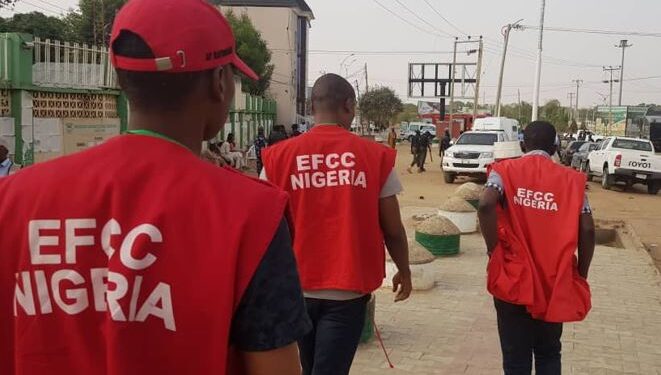In 2024 alone, 27 EFCC officers were dismissed for misconduct and fraudulent activities. On January 6, 2025, the commission’s spokesman, Dele Oyewale, confirmed ongoing investigations into a $400,000 theft allegedly involving a sectional head. Days later, 10 officers from the Lagos Zonal Command were detained for failing to account for operational items, including gold bars worth over ₦1 billion and approximately $350,000.
Adding to the controversy, an officer at the Kaduna Zonal Office was recently accused of stealing $30,000 and other exhibits. While EFCC leadership has remained silent on the Kaduna case, internal audits have been ordered across all zonal offices to account for recovered assets and tighten security measures.
Causes of the Theft
A security source blamed the thefts on poverty, rising living costs, and lack of adequate controls, describing them as “highly disappointing.” He criticized the agency’s failure to secure high-value items, suggesting that such assets should be stored in bank vaults or secured facilities with layered security protocols.
The source also recommended stricter measures, including ensuring that multiple officials with separate keys are required to access exhibit rooms. He urged outright dismissal and prosecution for officers caught stealing, emphasizing that such actions undermine the agency’s credibility.
Operational Misconduct and Public Outrage
The EFCC has also faced backlash over its controversial night raids. On January 17, 2025, Assistant Superintendent Aminu Salisu was fatally shot during a midnight operation in Awka, Anambra State, sparking criticism of the agency’s protocols. Legal and security experts have condemned the raids as invasive and unprofessional, with many accusing the EFCC of intimidating suspects and violating due process.
Prominent Nigerians, including rapper Skales, have shared traumatic accounts of such raids. Skales recounted how EFCC operatives broke into his home unannounced, traumatizing his family, including a newborn child.
Call for Reforms
The Centre for Anti-Corruption and Open Leadership (CACOL) has called for urgent internal cleansing to restore public trust in the EFCC. CACOL’s Executive Director, Debo Adeniran, lamented that corruption within anti-graft agencies undermines their credibility and effectiveness.
Similarly, security analysts and legal experts have called for improved oversight, ethical training, and background checks on EFCC personnel. They also emphasized the need for better welfare packages to reduce susceptibility to corruption.
EFCC’s Response
EFCC Chairman Ola Olukoyode has initiated reforms to address these issues, including restricting access to exhibit rooms, increasing surveillance, and conducting comprehensive audits. Oyewale, the agency’s spokesperson, defended these measures, stating that they reflect the chairman’s commitment to accountability and integrity.
However, critics argue that more drastic actions are needed to salvage the agency’s reputation. Security consultant Abuh Adam warned that unchecked corruption could further erode public confidence, while human rights advocate Okechukwu Nwanguma called for stronger oversight and enhanced whistleblower protections.
The ongoing scandals have intensified scrutiny of the EFCC, with many Nigerians demanding accountability and significant reforms to restore faith in the nation’s anti-corruption efforts.
























